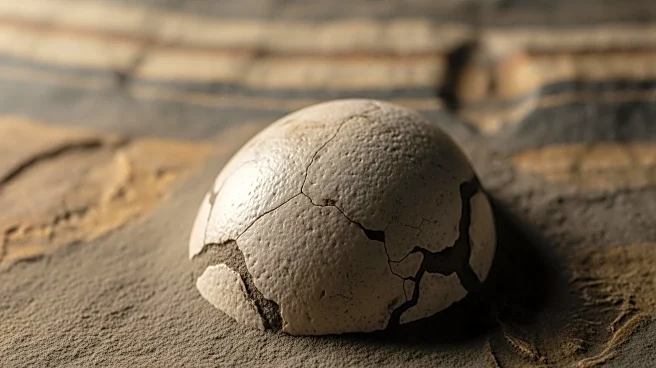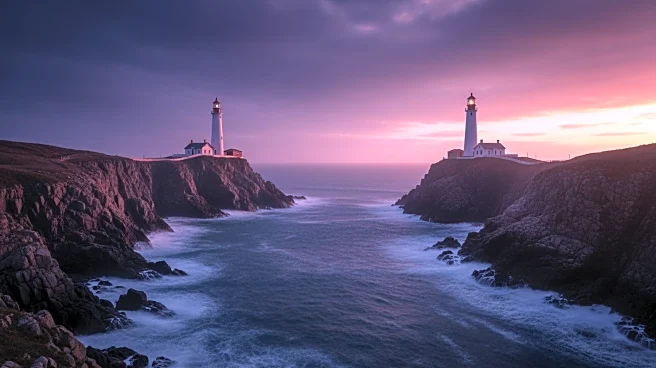What's Happening?
Researchers from UNSW Sydney and the Institut Català de Paleontologia Miquel Crusafont have identified the oldest known crocodile eggshells in Australia, dating back 55 million years. These eggshells belong
to mekosuchine crocodiles, an extinct group that once dominated Australian waterways. The discovery was made in Murgon, Queensland, a site rich in fossils from a time when Australia was part of a larger supercontinent. The eggshells provide valuable information about the reproductive strategies and ecological roles of these ancient crocodiles, some of which were terrestrial hunters and possibly semi-arboreal.
Why It's Important?
The discovery of these ancient eggshells offers a unique glimpse into the life history of mekosuchine crocodiles, enhancing our understanding of prehistoric ecosystems. This research not only sheds light on the evolutionary history of crocodiles but also informs modern conservation efforts. By studying ancient species and their adaptations, scientists can develop strategies to protect current vulnerable species facing environmental changes. The findings underscore the importance of paleontological research in understanding both the past and future of biodiversity.
What's Next?
The research team plans to continue excavations at the Murgon site, anticipating more discoveries that could further illuminate Australia's prehistoric biodiversity. The study of eggshells will become a standard component of paleontological research, providing insights into ancient reproductive strategies and environmental conditions. These efforts may lead to new conservation strategies for endangered species, drawing parallels between ancient and modern ecosystems.
Beyond the Headlines
The research highlights the potential of fossils to guide modern conservation efforts, as demonstrated by the Burramys Project aimed at rescuing the Mountain Pygmy-possum. By understanding the historical habitats and adaptations of ancient species, scientists can develop effective conservation strategies for species threatened by climate change today.









